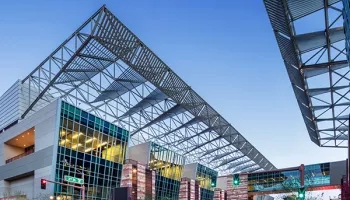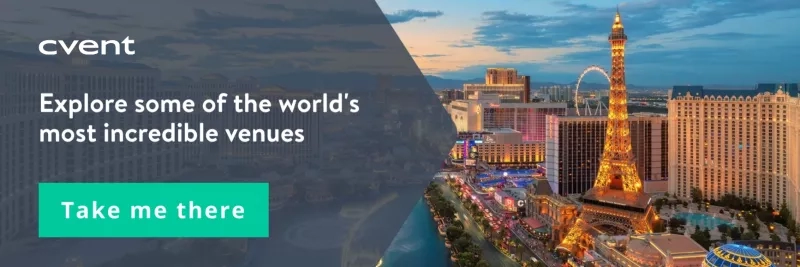
Business travel consistently increased over the last decade, and is now mounting its post-pandemic comeback. More and more working people are finding themselves on the road quite often, but a life of all work and no play isn’t very appealing. As a result, bleisure travel is growing and proving to be a profitable market in the hotel and travel industries.
In this post, we’ll be breaking down bleisure travel trends, facts, figures, and marketing strategies to help hotels appeal to this rapidly growing market. We’re breaking down what the market is, why it’s growing, and helping hotels develop profitable marketing strategies to capitalize on the growing travel trend.
Boost your hotel revenue and increase your bleisure travel
Hotel managers should always be on the lookout for new revenue opportunities. As the hotel industry becomes more competitive, hoteliers know how important it is to reach all profitable markets. Add bleisure travel to your sales and revenue strategy to boost business.
What is bleisure travel?
Bleisure travel is a growing market segment in the travel world. A combination of business and leisure travel, bleisure travel blends the worlds of work and play. Travelers in the bleisure market often add additional nights to their overnight business trips, using the extra time to enjoy leisure activities while they’re out of town.
Bleisure travelers choose to extend their stays for a variety of reasons:
● Visit friends and family in the area
● Experience local culture, cuisine or attractions
● Attend area festivals, tournaments and other events
● Explore outdoor recreation opportunities
● Enjoy a little peace and quiet or alone time
Are there different types of bleisure travel?
While all bleisure travel is an amalgamation of business and leisure travel, revenue planners, hoteliers especially, further segment bleisure travel in their marketing strategies. Hotel managers break bleisure travel down more so that they can identify business travel demand generators, as well as an individual's reasons for extending their stay to accommodate leisure.
Bleisure travel can be broken down into two primary categories: extended solo business travel and business travel with friends or family.
Extended business travel for the solo traveler
As the global workforce grows, more and more workers find themselves traveling for business. When we take a closer look at the business end of bleisure travel, most travelers who add leisure days to their work stay are traveling for a few primary reasons. Data shows that:
● Group business travel (e.g. conferences, conventions, etc.) accounts for 43% of bleisure travel.
● Sales trips account for around 9% of extended bleisure stays.
● 24% of bleisure tourists are travelling for off-site team events.
A lot of solo bleisure travel revolves around relatively infrequent events. Annual conferences, for example, only take place once a year and may be the traveler’s only opportunity to experience the destination. This occasional travel inspires guests to spend additional time in their destination to take in all it has to offer.
Business travel with friends and family
Travelers going to exciting destinations for work may choose to bring their family or friends along for a vacation. This trend is growing, especially amongst younger generations, as the idea of sacrificing family time for work is becoming more taboo. In fact, today’s savvy young worker seeks out hiring companies that offer generous time-off and travel benefits, often looking for bleisure benefits specifically.
Why is bleisure travel popular?
Whether it’s to check out a concert, hike a gorgeous mountain, or simply get some alone time, extending business travel for pleasure works for workers’ schedules as well as their wallets. For many, adding a mini-vacation at the end of a business trip is more affordable than trying to book separate holiday-only travel. Often, bleisure travelers take advantage of unused vacation days at the end of a work trip for a long weekend of fun.
Understanding the bleisure travel trend
In the early 2010’s, there was some debate between industry experts about whether or not the bleisure trend was real. Were more people really extending business travel to accommodate personal time? As new generations begin to dominate the workforce, traveling all over the world for business, the answer is a resounding, “yes!”
While the growth of bleisure travel stalled between 2011 and 2016, hotels saw a significant increase in blended travel come 2017. Bleisure increased 20% from 2016 to 2017, and the market has continued to grow. As more millennials enter the workforce, they are a dominating demand driver for hotels. Around 40% of millennials travel for work, and 55% of all business travelers are aged 30-49.
While millennials do make up the largest segment of the bleisure market, data shows that travelers of all ages are adding leisure days to their business travel. Bleisure travel is popular among age demographics as well as a wide variety of income levels.
What effect does bleisure travel have on the hotel industry?
As the amount of bleisure travel demand grows, hotels are fighting to get their fair share of the lucrative market. Hotel revenue is becoming more reliant on the success of bleisure travel. Hoteliers who focus on bleisure travel, and increase their efforts to attract it, will be greatly impacted.
By appealing to the bleisure market, hotel managers are:
● Encouraging longer guest stays.
40% of business travelers recently extended their work-related hotel stay to accommodate leisure activities, increasing average occupancy rates and promoting ADR growth. Even when shoulder night rates are higher, bleisure travelers who are satisfied with their hotel accommodations are unlikely to move properties to save a few bucks.
● Directly connecting hotels to their guests.
Travel accommodation options used to be solely decided by a few white-collar big wigs in the corporate travel office and employees were told where to stay. The discussion of company travel, however, has become a much more communal conversation over the last few years.
As the voice employees have in decision making grows, hotels are seeing the impact directly. The majority of bleisure travelers book their own leisure-based hotel stay, and often put pressure on their company’s travel department to consider their preferences.
● Building relationships with businesses who offer attractive employee benefits.
Companies who offer bundled business/leisure travel discounts are drawing a lot of attention from prospective employees. As the societal demand for a healthier work-life-balance grows, employees are actively seeking employers who offer benefits that fit that goal.
How can I capture more bleisure travel to boost hotel revenue?
Review your revenue plans and marketing strategy to see what bleisure travel strategies are already in place. Do they need improvement? Do they currently exist at all? Spice up your bleisure marketing with these best practices.
1. Inquire about potential bleisure needs with corporate accounts during your quarterly account maintenance calls. Contact the bookers for your top accounts regularly and inquire about upcoming on-site training, conferences, union negotiations or other events that may require a lot of travel to your town. Pin down high-demand dates and match them with local events to create unique promotions that appeal to your best corporate guests.
2. Market to the bleisure segment through 3rd party booking sites. Review OTA booking sites (hotels.com, orbitz.com, etc.) looking for competition hotels in your area. If your competition is marketing in locations that you are not, you’re missing out on revenue streams. Review OTA reports to see if you’re inactive on third party sites prevalent in your area.
3. Choose the best distribution channels to partner with before allocating marketing dollars. Discuss trends with your ownership company, revenue management team, and brand consultants to develop a strong distribution strategy.
4. Promote local attractions and events on social media to build relationships with vendors, businesses, and event venues that attract bleisure travelers to your area. Regularly tag, share content, and engage with top performing area social media accounts to boost your audience visibility.
5. Offer extended business group rates for shoulder night bleisure stays after speaking with your corporate event and booking contacts. Advertise discounted shoulder night rates to event and convention attendees to entice travelers to arrive early or stay late to experience some local fun.
6. Provide exclusive amenities or add-ons to bleisure travelers with promo or coupon codes. By adding a personal touch specific to your guest’s reason for travel, your property is targeting their marketing and building a relationship with future repeat customers.
A complimentary bottle of wine, guide to local attractions or a welcome basket with fresh fruit will go a long way with bleisure travelers. Order giveaways in advance, and include a hashtag or event tag guests can use to share posts about their experience. It’ll help build your online engagement numbers and create a future revenue pipeline.
7. Appeal to business travelers with internet cafes, digital workspaces, etc. Bleisure travelers want to transition from work to play seamlessly. Showcase private work areas in your hotel that offer the privacy and digital amenities today’s bleisure traveler needs to work remotely and get things done.
8. Train staff to connect with bleisure guests by discussing local attractions with callers and uncovering their reason for travel during check-in.
9. Promote fun and easy-to-access attractions that appeal to travelers with limited leisure time. Bleisure travelers who are able to extend for one extra night may not have time for a ten-hour hike, for instance.
10. Encourage repeat stays by engaging directly with bleisure travelers and appealing to their travel needs. Send surveys, promote one-on-one conversations during check in, measure demand drivers, and stay in close communication with the contacts for your top corporate accounts. When an annual event wraps, hotel managers should already have a plan in place to market to the bleisure attendees for that demand generator next year.
Explore hotel technology to accommodate bleisure travelers
FAQs
1. How do hotels attract bleisure travelers?
The key to appealing to bleisure travelers is providing an easy-to-book travel experience that meets their business and leisure needs at once. Promote property amenities that will help streamline the workday, such as an all-hours coffee bar or private high-speed workstations. At the same time, promote local attractions, unique events, shopping or restaurant discounts, and outdoor recreation opportunities. Hit all of the points on your future guests’ checklists in your marketing.
2. Do millennials book bleisure travel?
They certainly do! The bleisure travel trend is growing amongst all generations, but millennials are spearheading this shift in travel trends. As millennials become a larger part of the workforce, more and more are booking work-related travel. Around 90% of millennials say they have engaged in bleisure travel. That’s almost all of them!
3. What is a bleisure tourist?
A topical, trending travel term, “bleisure tourist” refers to individuals who regularly extend their business travel to include leisure time. They have a habit of adding a few days here and there to experience new travel destinations, take in unique sights, and explore their business-related travel locations.
4. What do bleisure travelers want?
Bleisure travelers are looking for customized, thoughtful and convenient accommodations that easily help them switch between being on and off-the-clock. When booking hotel rooms, bleisure guests prioritize the proximity of their accommodations to their place of business coupled with proximity to area attractions, quick service, personalized experiences, and a seamless digital connection.







